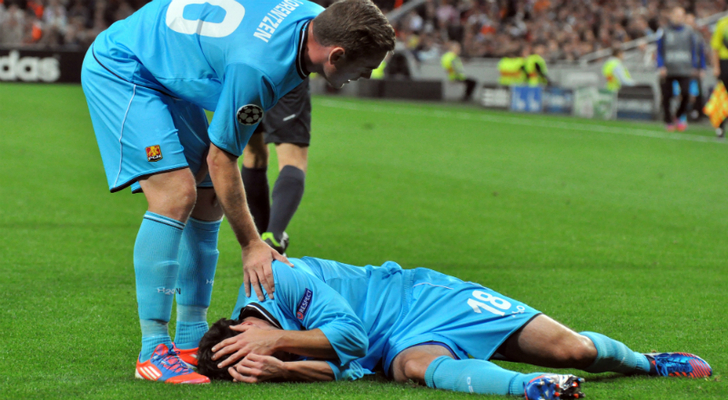Concussion Signs and Symptoms

The first sign of a concussion is a headache. It feels like a headache in consequence of a head injury. The level of pain may change: from the mildest to the severest. A headache is usually harsh when it is a concussion. Throbbing ache and pressure simply drive the patients mad. Not just a single field of the head feels that – looks like the symptom covers the entire part of the body. Moreover, the pain may move down to the neck and upper extremities.

The patients with concussion experience problems with thinking and ability to memorize things. It is the brightest notification a person might be having a concussion. Most often, only the memories a person had before the trauma are erased. In other cases, it is vice versa. The person also may lose coordination and balance. Confusion is another typical sign of a concussion. It results in repeating the same things over and over again.

Nausea and experiencing a feeling being sick to the stomach is yet another symptom that you may have with a concussion. While the nausea or sick feeling might be caused primarily from the pain associated with the cause of the concussion, it is also believed that it can be caused by the chemical imbalance within the brain that is often caused with any type of trauma. In many cases, these two symptoms arrive together. The overall feeling of being sick does not leave for a while.

People lose their ability to find the way under the influence of concussion. Such feeling of being lost and helpless is known as a concussion. It is a partner of confusion. In case of the injured head or a rough shake, it will be supported by the shock. Each time the brain faces a serious damage, a person may need several days to recover. It includes not only the physical but the mental condition as well. It is just a normal reaction of the organism to traumas.

Blurred vision is one more sign a person may be suffering from a concussion. On the whole, the disorder impacts the organ of vision greatly. A fuzzy vision is obvious when a person starts reading or tries to watch something. It becomes difficult to concentrate and perceive information. Seeing double images is another sign of the problem. A mild to medium ache in the eyes may take place. The patients find it hard to work with their computers, mobile devices, and type/write.

There is no wonder the patient may feel dizzy and sleepy. Most people who experience problems with the eye vision or headaches share they are rather drowsy all day long. Because of that, a person may feel dizzy. Usually, dizziness is an unexpected and unplanned phenomenon no matter what the diagnosis is. Once you receive a serious head trauma, it is better to sleep and relax for some time to let the trauma recover.

A person suffering from a concussion may become rather sensitive to the sounds, especially the sudden and loud ones. Sensitivity to light often means a patient may experience some issues with the surrounding sounds as well. It is the consequence of the damaged auditory system and bran. Even without anything going on around, the patient might hear some ringing or ticking sounds in his head, which simply drives mad from time to time.

A feeling of ongoing fatigue is one more obvious symptom of a concussion. It makes sense that a person who hears some noise all the time, lacks healthy sleep, is confused, dizzy, and irritated is overly exhausted. He or she feels like working all day long doing some difficult physical tasks. Oversleep is one of the outcomes of constant fatigue. However, taking an extra sleep usually does not help. Any head trauma or shaking end up fatigue. It is better still to avoid oversleeping.

The ringing ears are just one more symptom, associated with a headache and hearing the extra noise. It feels like the phone is ringing in your head or the clock is ticking all day long. Any minimal sound becomes twice as annoying as it could be. The problem is the patient’s eardrums suffer after the head injury, and that is one of the results. Perception and balance of such person are also disrupted as hearing the untypical sound will leave anyone confused for a while.

Slurred speech is the last but not the least important sign of a concussion. Any brain damage is followed by the problems with communication. It is no longer easy to structure sentences and support a dialogue on a single topic. Speech or language disorders are always the outcomes of the damaged head/brain as such problem impacts the muscles responsible for the mouth movements, speech and voice regulation. Along with coordination, the patient’s speech and ability to explain things clearly will suffer as well.
